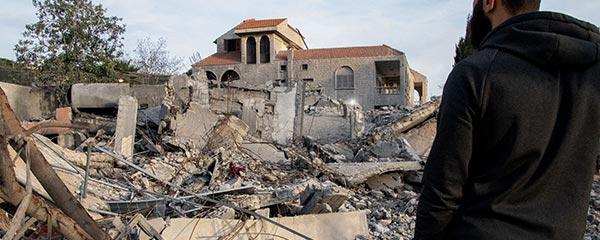This article is the second in a series about life in Israel and in the West Bank and East Jerusalem almost one year after Hamas attacked Israel on Oct. 7, and the Israel-Hamas war began.
LONDON -- ║┌┴¤═° surveys conducted in Israel in July and August 2024, nearly one year after Hamas attacked Israel on Oct. 7, tell a story of a country at war and still struggling to recover from its darkest day in recent history.
Here are five key insights into life in Israel as the war with Hamas continues in 2024 and threatens to widen.
1. Majority in Israel Feel Safe, but Not as Safe as Before Oct. 7
For the past two decades, the majority of Israelis have reported feeling . While this remains true in 2024, Israelis’ sense of safety has not recovered after being shaken in the wake of the Oct. 7 attacks.
Nearly 10 months into the Israel-Hamas war, 71% of Israelis reported feeling safe walking alone at night where they live, which is statistically unchanged from the 68% who felt this way in the weeks after the attacks last October. Notably, these data were collected before the recent escalation with Hezbollah in Lebanon and Iran’s missile attacks on Israel on Tuesday.
Although neither level is a record low for Israel, both measures are notably lower than the 82% of Israelis who felt safe in 2022 and the 79% average between 2018 and 2022.
2. Negative Emotions Recede but Remain High
In the immediate aftermath of the attacks, negative experiences -- particularly worry, sadness and stress -- rose sharply in Israel. No other country had ever seen such a large year-on-year increase in negative experiences since the World Poll began tracking these measures almost two decades ago.
Fast forward a year, and all three of these negative emotions have declined significantly. Daily feelings of stress have dropped by 28 percentage points to 34%, worry by 24 points to 43% and sadness by 23 points to 28%.
While Israelis are less worried, sad and stressed than they were last October, these three emotions remain elevated. Worry, sadness and stress are more prevalent now than they were in the years leading up to 2023.
3. Goodwill Toward U.S. Leadership Eases From 2023 High
The U.S. has long been Israel’s staunchest ally, providing military and diplomatic backing. In the aftermath of Oct. 7, including a visit from President Joe Biden in mid-October, Israelis’ approval of U.S. leadership climbed to a record high of 81%.
But approval ratings have dropped 18 points amid increasing tensions between the allies as the war has progressed. Sixty-three percent of Israelis approve of U.S. leadership -- which, while down, is still higher than it has been at several points over the past two decades.
4. Confidence in Government Unchanged
From 2009 to 2023 -- most of those years under the leadership of Prime Minister Benjamin Netanyahu -- an average of 41% of Israelis expressed confidence in their national government. Amid the ongoing war, people’s confidence in the Israeli government (40%) remains stable, in line with this long-term average.
Throughout most of Netanyahu’s tenure, Israelis have been more likely to distrust than trust their national government. The same is true this year. Over half of Israelis (53%) say they do not have confidence in their national government.
Despite this stability over time, confidence in the government varies across Israel. In both the Jerusalem and Southern Districts, roughly two in three Israelis express confidence in the national government (68% and 65%, respectively). Confidence falls in the Haifa (42%), Central (32%) and Tel Aviv (30%) Districts and is lowest by far in the Northern District (17%), which is home to a sizable number of respondents who identify their nationality as Arab, Arab-Israeli, Palestinian or Israeli-Palestinian.
Netanyahu’s personal approval rating tells a similar story to confidence in the government overall: 37% approve of his job performance, in line with his approval rating from 2023 (40%).
5. Israelis Judge Courts More Harshly
In the weeks before Oct. 7, mass protests sprang up over Netanyahu’s proposed reforms to the legal system that sought to limit the powers of Israel’s Supreme Court. The highly controversial reforms were shelved in the aftermath of the attacks, but Israeli confidence in the judicial system has continued to decline.
In 2019, over twice as many Israelis had confidence in the judicial system than not (64% vs. 31%). Five years later, Israelis are divided on the issue (46% have confidence; 45% do not).
Bottom Line
Israelis feel less worried, stressed and sad today than they did in the immediate aftermath of the Oct. 7 attacks, but they no longer feel as emotionally or physically safe as they did in the years before.
While the surge in approval for U.S. leadership seen a year ago has receded, Netanyahu has not captured more public support. Rather, he continues to be negatively reviewed overall. The course the conflict takes, including whether it escalates into a wider regional war, will likely dictate whether Israel’s mood improves or worsens.
To stay up to date with the latest ║┌┴¤═° ║┌┴¤═° insights and updates, follow us on X .
For complete methodology and specific survey dates, please review .
Learn more about how the works.




